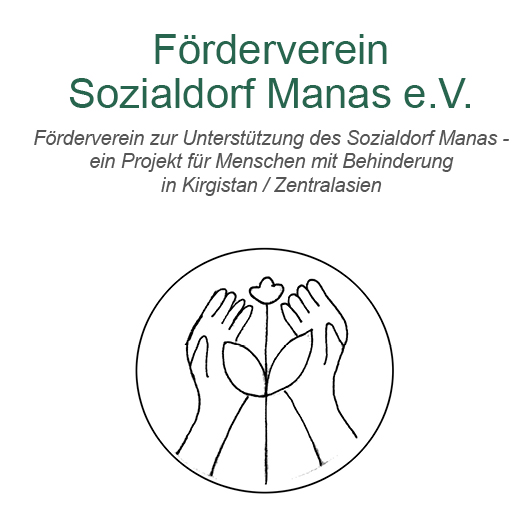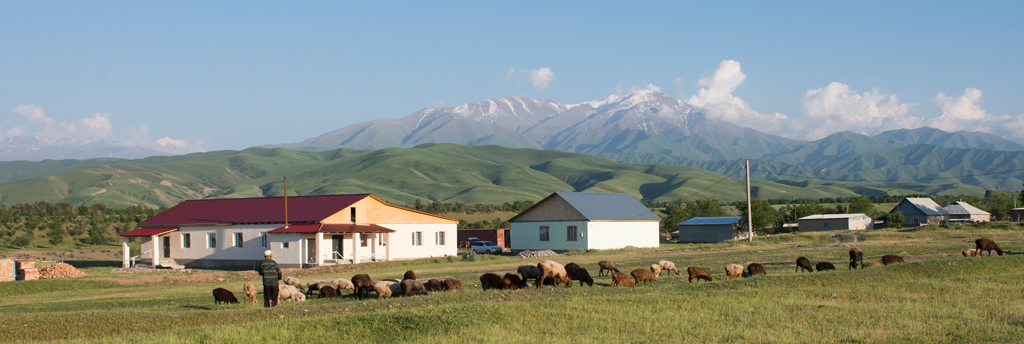

- The creation of a dignified place of living for young and adult persons with disabilities in Kyrgyzstan.
- Improving the living conditions and social rehabilitation of people with disabilities.
- The construction of therapeutic workshops and work areas (for example felt workshop, housekeeping, shop, laundry).
- The establishment of an own agriculture for an adequate supply of food and as a work place for the inhabitants of the social village.
The few projects in Kyrgyzstan for the promotion of people with disabilities are mainly projects for children. But the children grow older and older, they grow up. They need a facility in which they are accepted as adolescents and adults and can live their lives in a dignified environment, with loving care and with meaningful activities. The social village of Manas offers this place.
The organization Sozialdorf Village Manas in Kyrgyzstan was launched in 2004. The initiator and director is Gulbarchyn (Gulja) Takyrbasheva.
Nadjeschda offers the children opportunities to explore their disabilities. Teachers help children with disabilities to learn, to paint, to learn, to learn and to be happy, as well as to all children in the world.
The joy and sense of security that these children experience with Nadjeshda over the course of fifteen years are a source of anxiety and uncertainty as soon as they reach the age of their full age. Because then they have to leave the children’s center. Also state institutions for children with disabilities keep their children only so long, until these 18 years old.
The handicapped children are then grown up, but their problems remain the same. They ask themselves: Where can we go? Who can help us live a decent life?
For these disabled young adults, there is currently little prospect of further rehabilitation in Kyrgyzstan. For either they must feed with a tiny pension, or they are deported to state institutions, where they often die very soon. Not only because of the lack of care, but above all because of the lack of care and support.
That is why the dream was born in the children’s center of Nadjeshda, a facility for the grown-up children to found a social village.